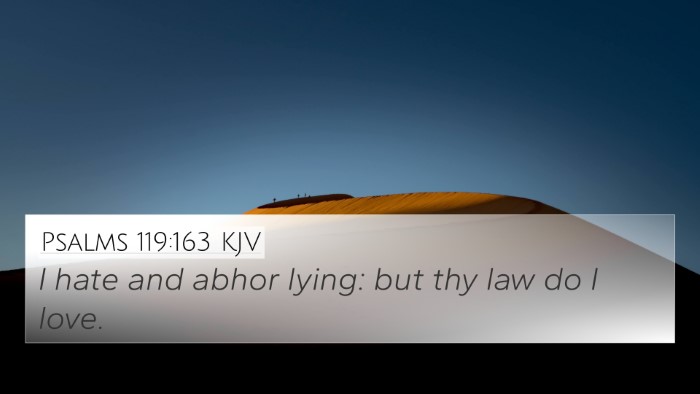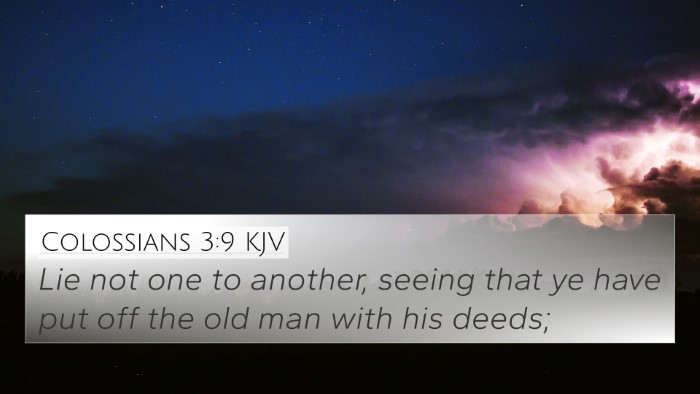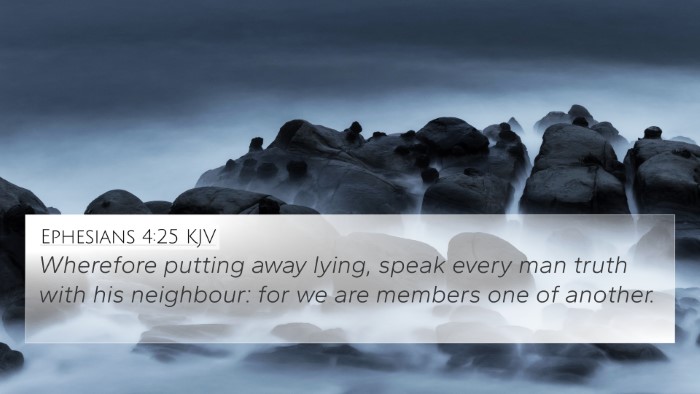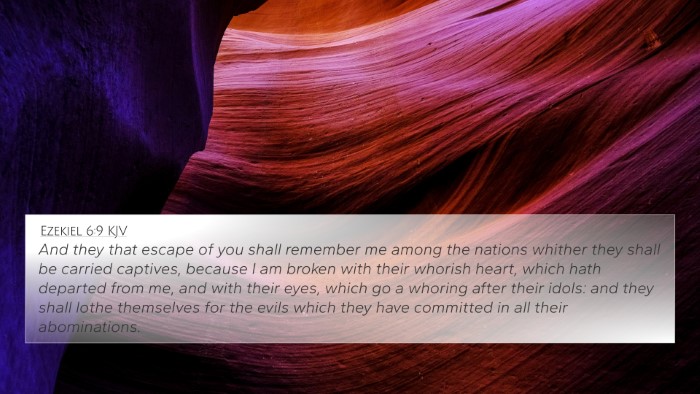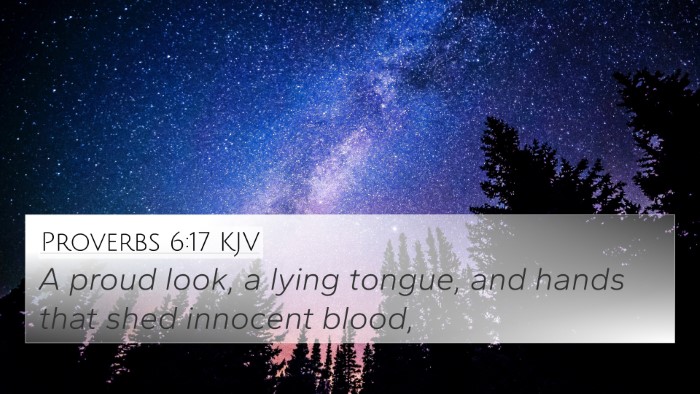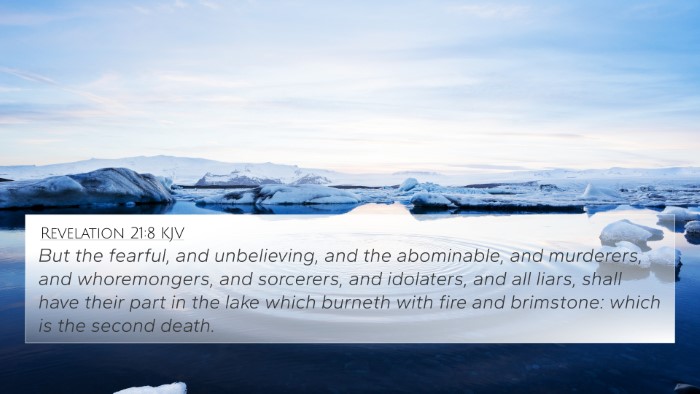Understanding Proverbs 13:5
Proverbs 13:5 states: "A righteous man hates lying, but a wicked man is loathsome and comes to shame." This verse speaks to the essential characteristics of righteousness and wickedness, illustrating the strong moral dichotomy found throughout Scripture. Below, we will explore its meaning by drawing insights from public domain commentaries, emphasizing the thematic connections and biblical parallels.
Verse Interpretation
This verse presents a contrast between the righteous and the wicked, with a specific focus on their attitudes toward truth and deceit. Let us break down the key components:
- A Righteous Man: According to Matthew Henry, a righteous man is defined by his integrity and aversion to deceit. He values truth and therefore has an inherent hatred towards lying.
- Hatred of Lying: Albert Barnes elaborates that the hatred towards falsehood is not merely emotional but is manifested in a righteous response against deceitful practices.
- The Wicked Man: Adam Clarke notes that the wicked man's nature is inherently tied to lying and deceit. He embodies treachery, leading to shame and disgrace.
- Loathsome Nature: The use of the word "loathsome" highlights how detestable wickedness is, contrasted sharply with the righteousness of a truth-loving individual.
- Consequences of Actions: The shame that comes upon the wicked serves as a reminder of the inevitable consequences of dishonesty, reinforcing the biblical principle of reaping what one sows.
Biblical Cross-References
In considering the thematic connections among Bible verses, we can identify several cross-references that elucidate the message of Proverbs 13:5:
- Proverbs 12:22: "Lying lips are an abomination to the LORD, but those who deal truthfully are His delight."
- John 8:44: "You are of your father the devil, and the desires of your father you want to do. He was a murderer from the beginning, and does not stand in the truth, because there is no truth in him."
- Psalm 101:7: "He who works deceit shall not dwell within my house; he who tells lies shall not continue in my presence."
- Romans 1:18: "For the wrath of God is revealed from heaven against all ungodliness and unrighteousness of men, who suppress the truth in unrighteousness."
- Jeremiah 9:5: "Everyone will deceive his neighbor, and will not speak the truth; they have taught their tongue to speak lies; they weary themselves to commit iniquity."
- Ephesians 4:15: "But speaking the truth in love, may grow up in all things into Him who is the head—Christ."
- Colossians 3:9: "Do not lie to one another, since you have put off the old man with his deeds."
- Proverbs 6:16-19: Lists the seven things the Lord hates, emphasizing the conflict between pride, falsehood, and righteous living.
- 1 Peter 2:1: "Therefore, laying aside all malice, all deceit, hypocrisy, envy, and all evil speaking."
- Revelation 21:8: "But the cowardly, unbelieving, abominable, murderers, sexually immoral, sorcerers, idolaters, and all liars shall have their part in the lake which burns with fire and brimstone, which is the second death."
Connections and Themes
Analyzing Proverbs 13:5 through these cross-references highlights vital biblical themes:
- Truth vs. Deceit: The consistent opposition between truth and deceit throughout Scripture is evident.
- Moral Character: Both a person's righteousness or wickedness significantly influences their actions and their standing before God.
- Consequences of Immorality: There is a recurring theme of judgment for deceptive practices, emphasizing the grave outcomes for those who stray from the truth.
- Call for Integrity: Believers are encouraged to embody truthfulness, reflecting their commitment to God’s standards.
- Contrast in Life Choices: The choices made by the righteous and the wicked lead to profoundly different life results, reinforcing the idea of divine justice.
Tools for Bible Cross-Referencing
If you are interested in exploring more about how to use Bible cross-references, consider employing these tools:
- Bible Concordance: A valuable resource for locating specific verses and their thematic connections.
- Cross-Reference Bible Study: Engaging in deeper study through parallel verses improves understanding of themes.
- Bible Reference Resources: Utilize comprehensive materials that provide insight into biblical relationships.
- Bible Chain References: Following the chain of thought through related scriptures can reveal deeper insights.
- Comparative Bible Verse Analysis: A method that allows studying similarities and differences between verses.
Conclusion
Proverbs 13:5 encapsulates a vital message about righteousness and the inherent disdain for deceit. Through the insights provided by biblical commentaries and cross-references, we see a broader narrative of truth in Scripture that invites believers to live with integrity. By understanding such connections and utilizing resources for deeper study, one can enrich their spiritual journey and engagement with the Word of God.



